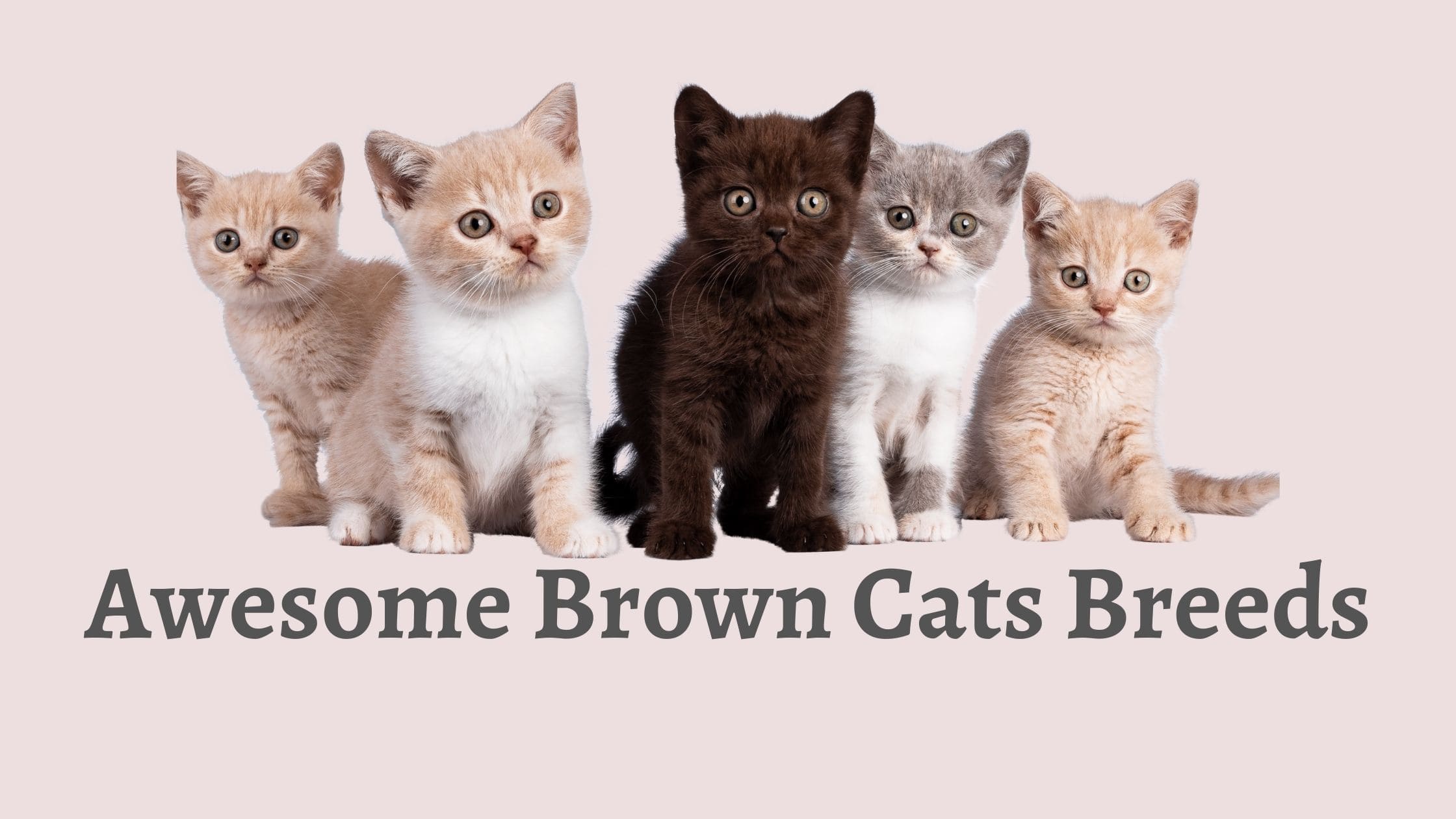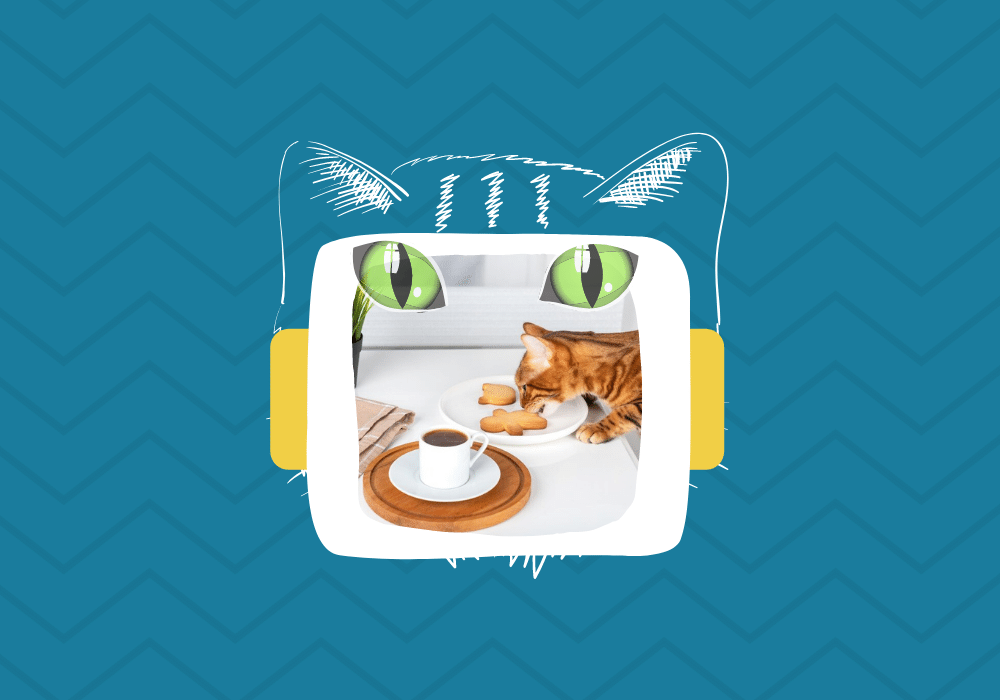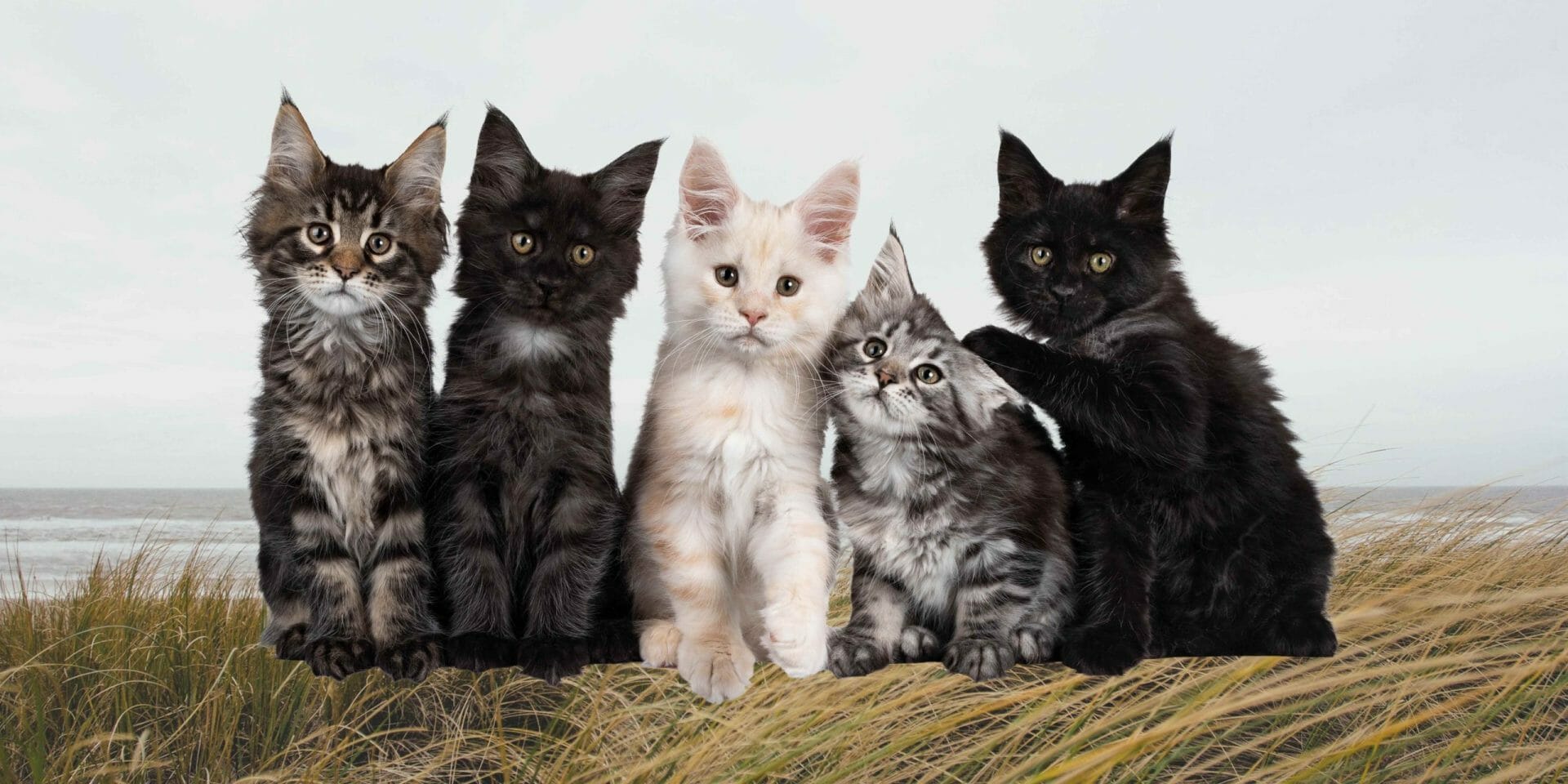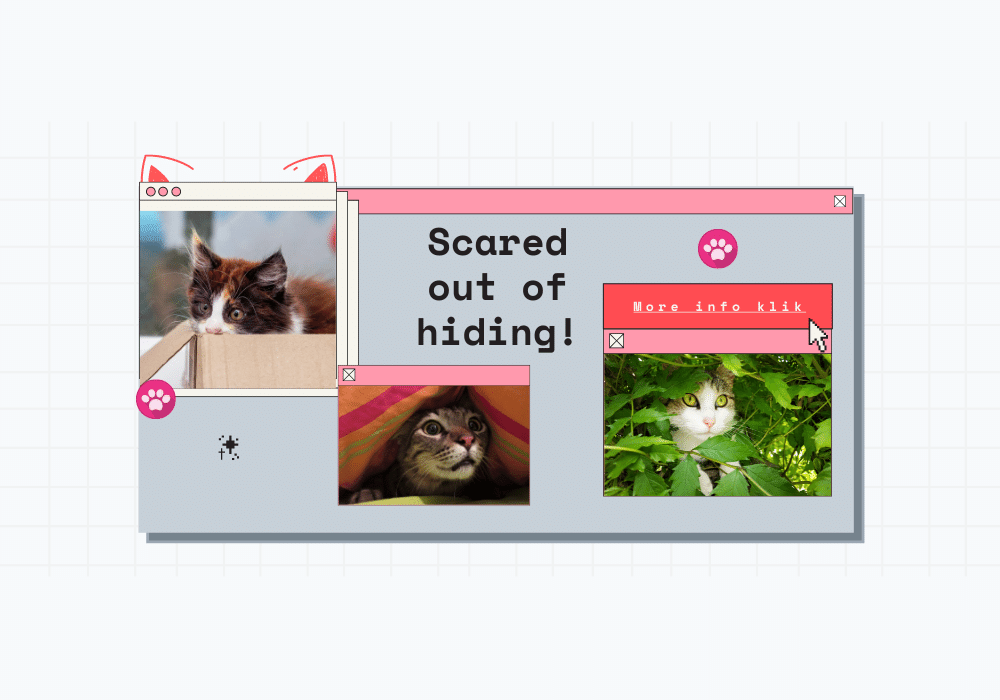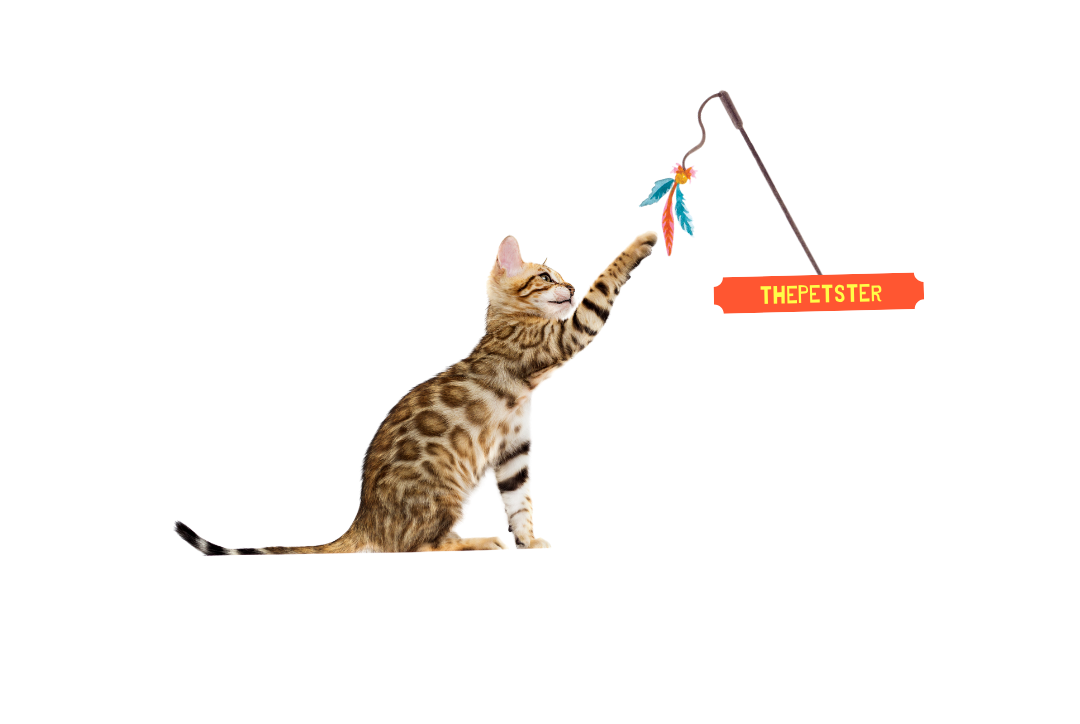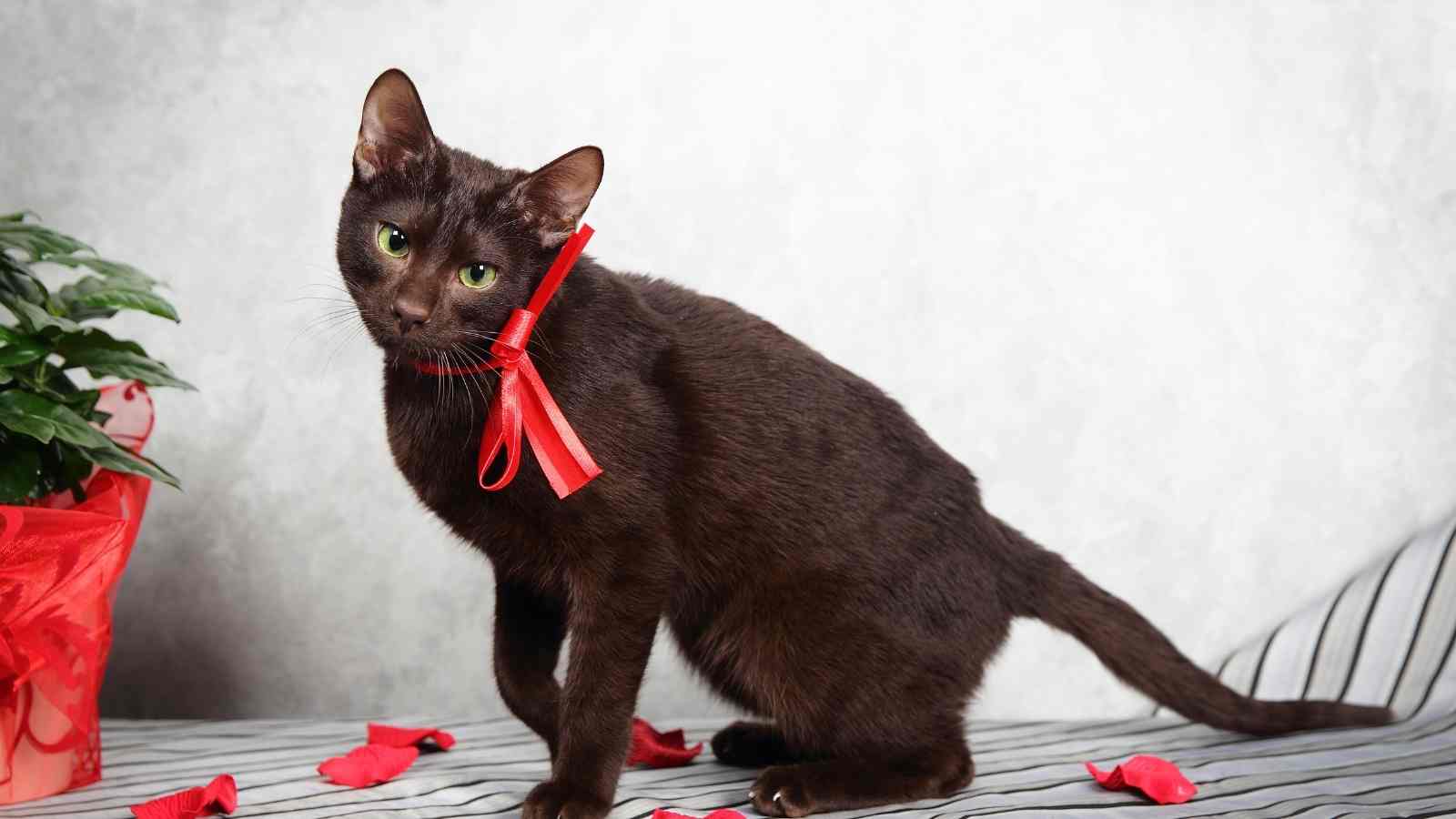Why Does My Cat Lick Me Then Bite Me?
If you pay close attention to your cat’s activities, you’ll notice that each has a lot of meanings that even the most experienced cat owners haven’t yet discovered.
You may occasionally find yourself puzzled by your cat’s behavior if you are a cat owner. For example, some of you may be thinking, “Why does my cat constantly lick me and then bite me?”
Cat psychologists claim that these are just some of how our cats express their feelings for us. This could also indicate that they are joyful and simply amusing. But these are merely allegations; no one knows if they are true. This is because no one can predict exactly what is going on inside the mind of your tiny pet at all times.
Let’s look at our cats today and see if we can figure out what these body languages, especially the licking, mean.
What Causes Cats to Lick?
Small keratin spines form cats’ tongues, making them particularly effective for cleaning, detangling their fur, removing dirt from their mantle, and drinking water.
Whenever a cat licks humans, especially if it licks the hair, it is grooming us, just like any other cat. It is an extremely good social act that demonstrates a close correlation with the owner and a desire to help us feel more relaxed.
Still, cats also lick as a show of affection since he has learned through associations that it is something that we like and generates endless caresses and affection. But, an excessive and continuous licking (even compulsive) can mean that something is not going well and that the welfare of our best friend is compromised, which is, therefore, an indication of stress and anxiety, in which case we recommend reviewing the five symptoms of stress in the most frequent cat.
Why Do Cats Bite?
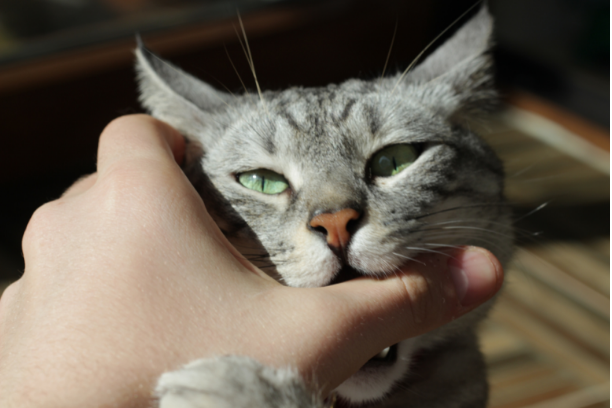
As with licking, a bite can also have several meanings; however, a cat is very angry or scared. He knows that it has nothing to do with the bites that a playful cat can perform, even if they are painful. Cats truly angry or scared show body language very expressive, contracted, rigid, and bristling, accompanied by snorts, alert meows, and curved backs.
In this case, the painful scratches accompanying the bite are irrelevant to other types of bites, including those that take place during a game, those that take place in self-defense, or those that take place to convince us to stop bothering or stroking them.
What Causes Cats to Lick and Bite?
After licking, many cats may bite us as a warning, while others may see it as a sign of affection, while another group may see it as an alternative method in the grooming process.
When the cats clean each other, they lick and chew each other to do thorough cleaning and brushing. Therefore it would be natural for a companion to bite us during a “beauty” session. It is perfectly typical and appropriate behavior for its kind.
Why Would A Cat Lick and Then Bite You?
1. To Express Their Feelings of Love
Your cat licks you and ultimately ends up biting because it wants to show you how much it loves you. It has full faith in you because of how well you care for it. So when your cat bites you, you have a strong relationship with it.
A cat’s skin is much thicker than a human’s, and they involve biting each other as a symbol of affection. If your cat targets biting you after licking, it means it likes you and believes you are a member of its family. So when cats bite you, they don’t realize that they’re hurting you.
2. Your Cat Assists You in Grooming
If your cat licks and bites you frequently, it is grooming you like a cat. To eliminate impurities and mats from their fur, cats frequently bite and scratch one other’s faces and necks.
You may have noticed your cat’s tongue has a scale-like texture because of keratin spines that assist in cleaning its body.
Suppose your cat is concentrating on biting and chewing at your glossy hair. In that case, this is a true indicator that your cat is grooming you. You can consider this a positive indicator that your furry companion is striving to establish a relationship with his valued friend, i.e., you.
Spend some best time with your cat and strengthen your friendship while you have the chance.
Bear in mind that cats do not groom other cats randomly; they groom their friends. As a result, consider yourself very lucky that the feline pet thinks you are a member of its group and intends to provide for your requirements.
3. Your Cat Requires a Break from Giving Physical Affection
When your cat is done petting you, it will lightly bite you to know it needs some rest.
Because your cat cannot communicate with you orally, it will convey its message through activities. Biting as a result of overstimulation is an indication that you should stop petting your cat.
The licking in response to the bite is a technique for your cat to soften the blow; it also indicates that the cat needs you to break but still loves you.
4. When You Continue Petting Your Pet Cat In The Same Place, It Becomes Agitated
If you continually pet a sensitive area of your cat’s body, it would become irritated and begin biting you to communicate that it will be overstimulated. Check your cat’s ears. She exhibits this type of behavior.
If your cat’s ears are flat on its head or are constantly flickering, you should leave him alone.
If your cat sometimes doesn’t try to get away from you when you keep it in a different place, it still likes you to pet it, but not in that location. If your cat is still trying to get away from you, give it a little more space because it has fulfilled its regular petting quota.
5. Your Cat Desires To Play
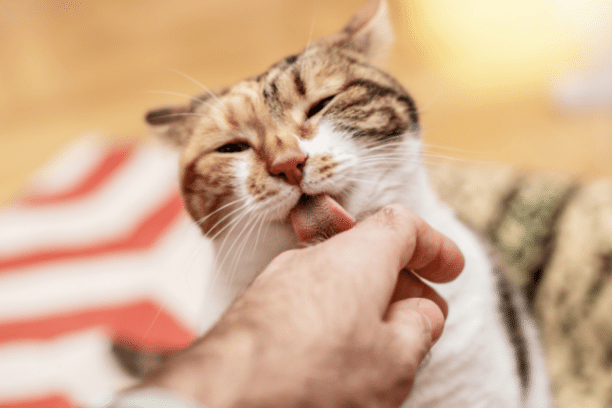
When your cat bites and licks, it is usually an indication that it is ready to play. The presence of a toy in your cat’s close surroundings is a great indication that the cat likes playing.
However, it would help if you distinguished between your cat’s desire to play and overstimulation.
Whenever your cat’s ears and whiskers are pointed forward, and its tail is raised in the air, it is in a playful mood. However, the fact that your cat’s ears are flattened on its ears indicates that your pet cat has had enough caressing and expects you to quit.
The reaction of your furry companion after biting you is the determinant of whether or not you want to play rather than be overstimulated. It’s a sign that it likes playing with you if it’s jumping around and staying close. On the other side, when your pet cat becomes nervous and leaves the area, it is overstimulated.
If your cat remains close to you after biting, you can include a toy to determine whether or not your cat wants to play.
6. Your Pet Cat Is Under Stress
Whenever your pet cat is under stress, it licks you and bites you to relieve the stress. Another possibility is that your cat would become aggressive and begin to chew on things. Cats frequently behave in this manner when they are agitated or anxious.
The major cause of cat stress is unknown; however, it has to do with failure to achieve a goal. This reaction is natural, as people become irritated when their desired results remain unlikely to be achieved after several attempts.
In the same way, cats attempting to recover from illness experience stress, which can express itself through aggressive behavior.
Cats experience stress when they cannot complete the desired task due to their present condition or lack of fitness.
When your pet cat is recovering from an illness, it will not engage in as much activity as other cats, which will cause stress in your cat. Stress can cause your pet cat to bite you delicately to notify you that something is wrong with your cat.
Therefore, if you feel that your cat is stressed, it is appropriate to take it to the veterinarian for an examination and start the necessary treatment. Your cat may be suffering from stress due to an underlying medical condition that requires immediate attention.
7. Natural Hunting Behaviours
Cats enjoy hunting, but they develop the skills through stalking, pouncing on prey, and biting in the wild. Even with their domesticated companions, wild cats are aggressive.
Although domesticated cats lack the same outdoor skills, they possess similar hunting instincts to their wild counterparts.
In establishing social bonds with their offspring and preparing for maturity, kittens use rough play as social bonding. If your newborn kitten lacks feline playmates, she will try to bite you.
Your cat’s hunting instincts are stimulated even when you pet it, so it playfully bites you. When you see this, you know that your cat has a good time with you.
8. Your Cat Is Leaving a Mark on You
If you brought a new pet home, your cat might be worried about its place in the house. When a cat bites you during a playing activity, your cat wants to leave a scent on you.
Cats have an instinct to mark their territory to show dominance over other pets and then let it realize that you are completing your cat’s territory. Additionally, it’s a method for your pet cat to express its affection for you.
This behavior will disappear when your cat develops acquainted with the new pet or becomes accustomed to it.
9. Your Cat Likes You
Even though it’s not frequent, cats will lick and bite into your skin if they notice that you’ve applied anything tasty on your skin, such as a strawberry-flavored cream. Likewise, if you eat something delicious and the sauce drops into your hand, your cat most likely enjoys the flavor.

Keep a watch on your cat if it has eaten something intoxicating. Your skincare products may include harmful ingredients for cats.
10. The Cat Breed
As with people, each cat breed is unique in personality, temperament, emotional maturity, and everything else. For example, certain cats are aggressive, while others are polite and friendly. The type of cat breed you have is one factor that determines how your cat will act because of the traits that are passed down from generation to generation.
Your cat’s tendency to bite you from nowhere may be an inherited tendency from its breed. However, this does not indicate that your cat dislikes you or intends to attack you. Most likely, you touched your cat in a sensitive place, and as a result, your cat bit your hand.
What Causes My Cat’s Licking to Hurt So Much?
You may feel uneasy whenever your cat licks you, especially if she licks a specific area of your body or face excessively. This is due to the papillae, or barbs or spines on the back of her tongue. In addition, its scoop-shaped and hollow design makes it ideal for storing and holding saliva.
Barbs assist in removing debris from a cat’s coat. The barbs need to be sharp to keep a cat’s coat clean. When your cat’s tongue brushes across your skin, you may experience a sandpaper-like sensation, which may be the source of your discomfort.
What Are The Significant Health Issues Occur?
It’s unlikely, but your cat biting you after licking you could result in a health issue. Whenever you touch your cat, and it evokes discomfort rather than a friendly trill, this indicates that your cat is suffering from an underlying health issue.
Several possible health problems that could cause your cat to bite you gently include the following:
- Petting your cat will irritate it if it has knots in its fur that make it uncomfortable. You must de-mat them, or your pet will remain uncomfortable.
- You accidentally caused harm to your cat by scratching or wounding it.
- Your cat has experienced skin irritation as a result of an unknown reason.
Is There Anything Serious About The Frequent Licking And Biting?
Certain cat behaviors indicate to the owner that the cat is experiencing discomfort or suffering. For example, if your cat displays signs of distress when you pet a particular area of its body, you should check for wounds or bite marks on that spot.
If your pet is in pain but there are no obvious signs of injury, consult a veterinarian to discover the source of the discomfort. It is biting you gently, maybe your cat’s way of trying to show you something vital about its health.
How Can You Avoid Your Cat From Being Overstimulated?
- Avoid allowing your cat to roam in locations it dislikes.
- Stop petting your cat if you notice any signs of distress.
- Keep track of when your cat enjoys being pet.
- Take a break between petting sessions.
- Avoid retaliating if the cat bites you, as this may cause your cat to become scared of you.
How Do I Prevent My Pet From Biting Me?
You can prevent cats from biting you if you follow these simple guidelines.
- Use positive reinforcement. Positive reinforcement is the most effective way to prevent a cat from biting, especially if the cat is a young one. It would help make your cat understand that biting is not comfortable. Don’t let it bite you in any way. This will lessen the chance of doing this again.
- Pretend to hurt when your cat attacks you. When your cat bites you unexpectedly, show it how much the small bite hurts. Try to fold your fingers together if the cat tries to get your hand away from you.
- Give Cat Toys. Chew toys will satisfy your cat’s desire to bite. Assure that your cat has different chew toys since they can quickly grow bored with only one. When your cat’s instinct to bite is satisfied, the likelihood of your cat biting you reduces.
- You are providing her with an unpleasant treat. Put something gentle on your skin but unpleasant to the cat if you want it to stop. Once the cat has tasted it, she will quit eating it. This could become a problem if the cat begins to associate the foul taste with your presence on the premises.
Related Posts
- Trinidad Olive Tarantula – All Facts
- Purple Bloom Tarantula – All Facts
- Brazilian Jewel Tarantula (All Facts You Need To Know)
- Mink Vs. Ferret – All You Need To Know
- Why Do Cats Put Their Butt In Your Face?
- Why Does Your Hamster Smell? (Great Tips To Smell Better)
- How to Cut an Uncooperative Dogs Nails (Easy Guide)
- How Do Keep Cats Away From Rabbits? (Easy Guide)
- How To Get a Scared Cat Out of Hiding?
- What Do Cats Like To Have For Breakfast?

